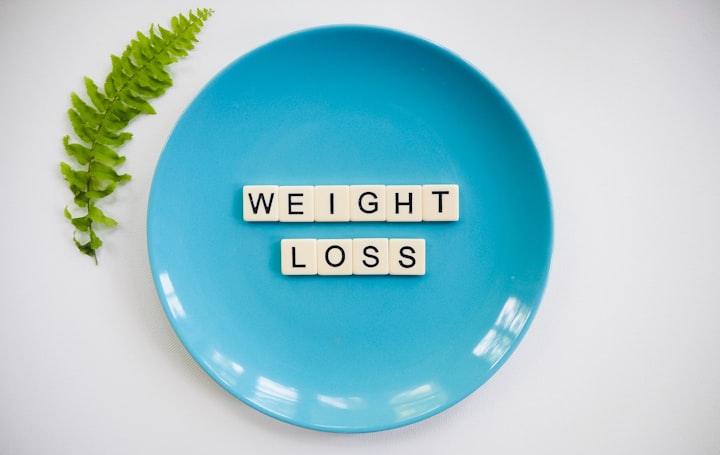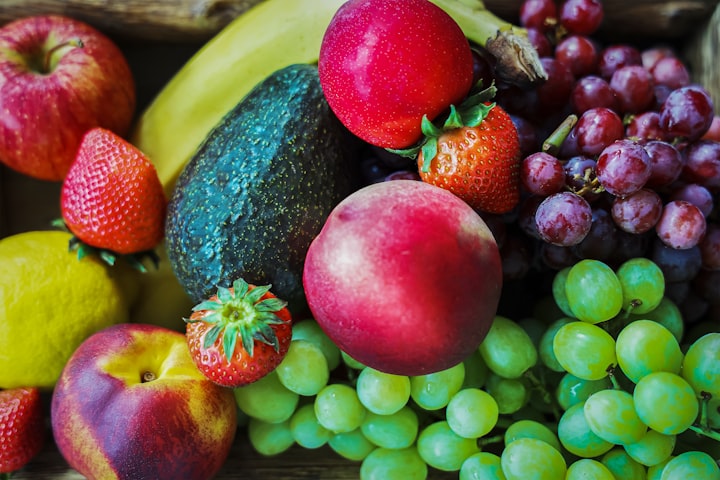How Can You Lose Your Weight Fast
8 Best ways to control weight

You want to lose weight ?and you need to do it fast ? You want to soar with eagles? ----Remember weight loss is a hard work not magic, so be patient with yourself because it's all about effort and when you bring that effort every single day , that's where transformation occurs.
Here is the list of few science backed tips that can help you achieve your goal at steady pace. These healthy tips hold true for almost all of us — and we can put these tips into practice beginning from right now.
1- Do not skip a breakfast

Eat a well-rounded breakfast if you are trying to lose weight because by skipping your morning fuel , you could miss out on essential nutrients such as vitamin D, calcium and iron, and you may end up snacking more throughout the day because you feel hungry. Infact skipping breakfast is associated with overweight and obesity.
Eating a nutrient- rich breakfast packed with protein and high fiber whole grains can keep you satiated , reduce cravings , and thus you feel full for a long time.
Try a bowl of whole-grain cereal topped with fruit and low-fat dairy for a quick and nutritious start to your day.
2- Eat regular meals

Often, people think that skipping a meal can help to cut down on overall calorie consumption. However, skipping meals makes your calorie burn rate slow down , making it harder to lose weight.
Eating regular meals boosts metabolism, keeps you energized, and helps you maintain a healthier diet. Moreover Eating at regular times during the day helps burn calories at a faster rate. It also reduces the cravings for foods high in fat and sugar.
3. Eat fruit and vegetables

Consuming fruits and vegetables provides your body with enough fiber to keep your digestive system functioning smoothly . In addition to it, fiber makes you feel full and reduces cravings. This directly affects your calorie intake and ability to lose weight.
fruits and veggies are also filled with water. The high water content is good for your body and digestive system, it also fills up your stomach faster than other foods and contain plenty of vitamins and minerals.
4. Get more active( exercise like crazy)

Research shows that regular physical activity enhances your chances of maintaining weight loss. In fact , being active is a key to any weight-loss program. When you're active, your body uses more calories. And when you burn more calories , you lose weight.
Both regular physical activity and a healthy eating plan are required to get to and stay at healthy weight.
5. Drink lots of water

Research shows drinking more water is associated with weight loss because water is a natural appetite suppressant. Ample water intake can help increase satiety and combat sugar cravings. Water can help to reduce hunger , leading to a feeling of fullness and curb unnecessary snacking.
6. Trim portions

Eating smaller portions is a good way to lose weight and control your intake of unhealthy food. If you did nothing else but reduce your portions by 10%-20%, you would lose weight.
Eat more fibrous foods such as whole-grains, beans, fruits, and vegetables, Include more protein in your meals and snacks and don't shy away from healthy fats because they aid in satiety and help you feel fuller when eating smaller portions.
7. Avoid junk food (stop eating delicious food)

Junk food refers to consumables with minimal nutritional value. Foods high in salt or sugar content can also be classified as junk food because they can negatively impact your body. Junk food is simple to carry ,buy, eat, and drink.
Top junk foods to avoid are, pizza, burgers, and fries. These foods are ridden with trans fat and contain bad cholesterol which will result in heart ailments and obesity. Trans-fat should be completely avoided as it contains zero health benefits and remains stored within our bodies.
The buns and dough burgers and pizzas are just as unhealthy because they are heavily processed. Further, the oil used in deep fryers used to cook fries is severely unhealthy , especially if ingested on regular basis.
8- Intermittent fasting

Intermittent fasting refers to eating plans that alternate between fasting and eating periods .The goal is to systematically starve the body long enough to trigger fat burning.
While research is still underway and the method may not be suitable for everyone, there is evidence that, when done correctly , intermittent fasting can help lose weight, lower blood pressure and cholesterol, prevent or control diabetes, and improve brain̕ s health.
There are several approaches to intermittent fasting , but the easiest to achieve is perhaps the one that simply extends the usual night time fast. A daily cycle of 16- hour fast followed by a 8- hour eating window is usually sustainable.
For intermittent fasting to be safe and effective , it must be combined with balanced meals that provide good nutrition. It is important to stay hydrated ,and know your physical limits while fasting . The fast must be broken slowly. Overeating after fast, especially of unhealthy foods, must be avoided.
Intermittent fasting may also help eliminate risk factors for health conditions like diabetes and cardiovascular disease, such as lowering cholesterol and blood sugar levels.
The most common intermittent fasting methods include the following:
The most common methods of intermittent fasting include the following:
Alternate day fasting (ADF): Fast every other day and eat normally on non-fasting days. The modified version involves eating just 25–30 percent of the body’s energy needs on fasting days.
The 5:2 Diet: Fast on 2 out of every 7 days. On fasting days eat 500–600 calories.
The 16/8 method: Fast for 16 hours and eat only during an 8-hour window. For most people, the 8-hour window would be around noon to 8 p.m. A study on this method found that eating during a restricted period resulted in the participants consuming fewer calories and losing weight.
About the Creator
Aisha Shamim
I am Aisha Shamim: A Teacher, Researcher, and Writer. Most of my articles are about fitness and pets, i also write about science.
If you like my work leave a like and don't forget to subscribe!






Comments
There are no comments for this story
Be the first to respond and start the conversation.